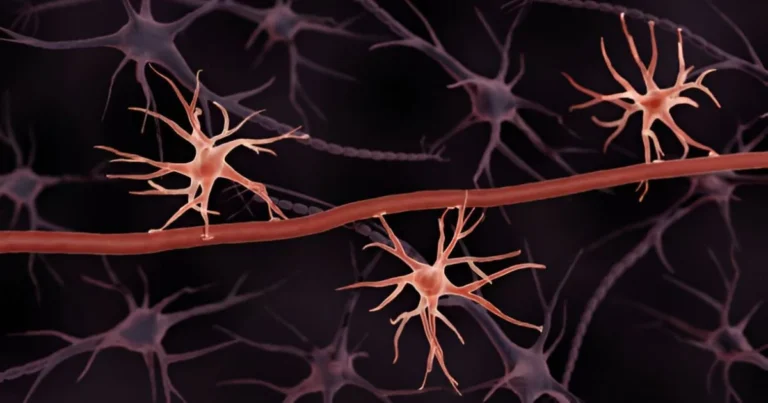Sleepless Nights: How sleep deprivation strengthens unwanted memories
Sleep, the nightly journey we undertake without a second thought, is more than just a refuge for a tired body. It functions like a silent architect, building, classifying, and sometimes demolishing our memories. Each night, this delicate process filters what deserves to be retained and sets aside the mental clutter. A lack of sleep, however, does more than deprive us of rest: it undermines our ability to distance ourselves from certain thoughts, to ward off those unwelcome memories that intrude at the most inconvenient moments.
A recent study has shed new light on this phenomenon, indicating that sleep, especially REM sleep, plays a pivotal role in managing our thoughts and preserving emotional balance.
Rem sleep unveiled: Defusing nightmares and traumatic flashbacks
A team of researchers at the Medical University of Innsbruck recently revealed crucial findings on the vital role of REM sleep in organizing and regulating our memories. They observed a group of participants suffering from Post-Traumatic Stress Disorder (PTSD), a condition linked to traumatic events, and from recurring nightmares, aiming to better understand the brain dysfunctions associated with these disorders.
To probe the mysteries of sleep, the team first used polysomnography, a method of measuring and recording different sleep stages by tracking changes in brain and body activity throughout the night. By examining sleep cycles, they identified specific moments when brain activity shifts, making it possible to distinguish between light sleep, deep sleep, and REM sleep. The latter, also known as “Rapid Eye Movement” sleep, is a unique phase in which the eyes dart rapidly while the body remains almost immobile. It is during this stage that our most vivid dreams occur, and when nightmares are most likely to emerge.
To delve deeper, the researchers then employed functional Magnetic Resonance Imaging (fMRI), which maps the real-time activity of various brain regions. This approach helps link changes in specific parts of the brain to events participants experienced, particularly nightmares or stressful moments tied to traumatic memories.
They discovered that in individuals prone to frequent nightmares, the amygdala, a small brain region responsible for processing fear, remains stuck in a constant state of hyperactivity, as if perpetually on alert for threats, real or imagined. On the other hand, another key region, the prefrontal cortex, which helps regulate emotions and soothe anxieties, shows reduced activity. This imbalance between the amygdala and the prefrontal cortex impairs the brain’s ability to tone down extreme emotions, making nightmares more intense and awakenings more abrupt.
Researchers have observed that in individuals who frequently experience nightmares, the amygdala remains in a constant state of hyperactivity. It appears to be stuck in “alert mode,” ready to respond to any threat, whether real or imagined.
Participants often report a sense of panic upon waking, frequently accompanied by a racing heartbeat and excessive sweating, as though the events of the nightmare continued into their waking lives. This powerful response reflects the lasting mark left by nightmares and the way they repeatedly stir up repressed emotions, even after sleep ends. Without truly restorative rest, traumatic memories lose the chance to stabilize or fade. Instead, they are continually reactivated, like a looping reel that relentlessly replays painful events.
The researchers highlighted the direct impact of this excessive amygdala activation, paired with the brain’s failure to regulate fear. This constant re-triggering of traumatic memories disrupts the brain’s “natural fear extinction” process, which is hampered by never-ending vigilance and unchecked emotion. A vicious cycle then takes shape: hypervigilance sparks anxiety, and anxiety in turn perpetuates hypervigilance.
Trapped in the echo: how traumatic events take hold of the mind
These findings illustrate how disturbed sleep affects emotional memory. Traumatic memories appear to be re-engraved repeatedly, reemerging with each awakening like a wound left unhealed. In the absence of the restorative processes offered by REM sleep, the brain’s natural “reset” of fear responses is thwarted. This unbroken loop of hypervigilance only deepens the roots of anxious thoughts.
The study also found that insufficient REM sleep compromises the consolidation of positive memories. The mind becomes fertile ground for dark thoughts to flourish, while the seeds of comforting experiences struggle to take hold.
Researchers have also shown that a lack of REM sleep impairs the consolidation of positive memories.
In light of these results, the study emphasizes the value of therapeutic interventions aimed at restoring sleep quality. Therapies such as cognitive behavioral therapy (CBT), designed to improve sleep regulation, could play a pivotal role in interrupting this downward spiral. By allowing the brain to reorganize and properly process memories, such treatments can reestablish the emotional balance necessary for healing.
Ultimately, sleep is far more than a basic biological requirement; it is fundamental to our mental and emotional well-being. When restorative sleep is lacking, intrusive thoughts accumulate, disturbing clarity and inner harmony. Each night of rest grants the brain a chance to sort and regulate our emotions, performing a critical function in managing both memories and anxieties. Safeguarding our well-being demands that we protect our sleep quality, for in those moments of serenity lies the genuine renewal of our mental balance.
Reference







